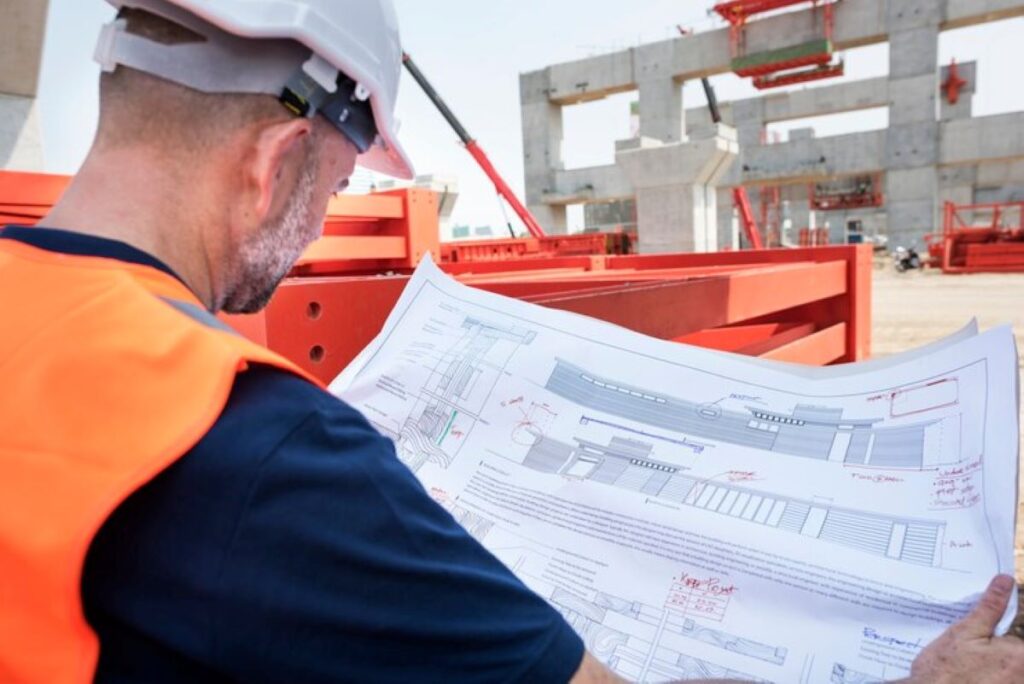Finding the right surveyor for your residential or commercial project is a crucial step that can influence the success of the undertaking. Whether you are constructing a new building, purchasing a property, or undertaking a renovation, a qualified surveyor can provide essential insights and expertise. In this article, we will explore the role of a surveyor, why hiring a qualified professional is important, and how to make the best choice for your needs.
Understanding the role of a surveyor
A surveyor plays a vital role in various types of property projects, ensuring that all measurements and regulations are accurately followed. Without their expertise, potential complications can arise, resulting in unnecessary costs and delays.
Key responsibilities of a residential surveyor
Residential surveyors focus primarily on domestic properties. Their key responsibilities include conducting detailed inspections, assessing property conditions, and identifying any potential issues that may affect residential transactions. They prepare comprehensive reports that highlight structural problems or necessary repairs, which can be critical for homebuyers.
Additionally, residential surveyors may assist with property valuations and advise clients on renovation projects. Their knowledge ensures that homeowners are fully informed about the properties they are purchasing, ultimately helping them to make sound investment decisions. This role is particularly important in today’s market, where the demand for housing often leads to rapid transactions. A thorough survey can uncover hidden issues, such as damp or subsidence, which might not be immediately visible but could lead to significant financial burdens if left unaddressed.
Key responsibilities of a commercial surveyor
On the other hand, commercial surveyors specialise in non-residential properties, which can include offices, warehouses, and retail spaces. Their responsibilities entail conducting thorough property assessments, advising on property values, and helping clients comply with various legal and regulatory requirements.
Commercial surveyors are also involved in lease negotiations and property development projects, providing clients with crucial market insights. Their expertise in commercial property transactions helps clients maximise their investments while minimising risks associated with commercial real estate. In addition to these tasks, commercial surveyors often analyse market trends and economic factors that could impact property values, allowing businesses to make informed decisions about their real estate strategies. This analytical aspect of their role is essential, particularly in fluctuating markets where understanding the economic landscape can lead to advantageous investment opportunities or the avoidance of potential pitfalls.
The importance of hiring a qualified surveyor
Choosing to hire a qualified surveyor is imperative to ensure the success and efficiency of your project. Their professional qualifications denote expertise and knowledge in property dealings, which can save you considerable time and money in the long run.
Ensuring quality and accuracy
One of the main advantages of hiring a qualified surveyor is the quality they bring to the table. With their training and experience, they provide accurate assessments that are essential for making informed decisions. This accuracy can be the difference between a successful project and one fraught with unexpected costs due to overlooked details.
Moreover, a qualified surveyor employs advanced technology and methodologies that enhance the reliability of survey results, ensuring that clients receive the best possible service. They utilise tools such as 3D laser scanning and Geographic Information Systems (GIS), which not only improve precision but also allow for a comprehensive analysis of the site. This level of detail can uncover potential issues early on, providing a clearer picture of the project’s feasibility and informing future planning stages.
Avoiding potential legal issues
Legal problems can arise from improperly executed surveys, which can lead to costly disputes. A qualified surveyor will be well-versed in local regulations and legal requirements, thus helping you avoid potential pitfalls. Their expertise allows them to complete necessary documentation in compliance with local laws, minimising the risk of future issues.
In addition, having a qualified surveyor can enhance your negotiating position by presenting well-supported data in disputes, thus protecting your interests should conflicts arise with neighbours or regulatory bodies. Their familiarity with the nuances of property law means they can provide invaluable guidance on boundary disputes, easements, and land use regulations. This knowledge not only fortifies your position but also fosters a smoother communication process with all parties involved, ensuring that any disagreements can be resolved amicably and efficiently.

Steps to finding the right surveyor
Finding the right surveyor requires careful consideration and research. It’s important to follow a structured approach to select a professional who is well-suited to your specific project requirements.
Identifying your specific needs
Before you begin your search, take the time to identify your specific needs. Consider whether your project is residential or commercial, and outline the type of services you require. Your needs may involve new construction, property valuation, or condition surveys.
Having a clear understanding of your requirements will help you narrow down your options and find a surveyor with the relevant expertise. Additionally, it may be beneficial to think about the scale and complexity of your project. For instance, if you are undertaking a large-scale development, you might need a surveyor with experience in project management and coordination, as they can help streamline the process and ensure that all aspects are meticulously planned and executed.
Researching potential surveyors
Once you have established your needs, conduct thorough research to identify potential surveyors. Look for professionals who are accredited with recognised organisations such as the Royal Institution of Chartered Surveyors (RICS). Their accreditation ensures that the surveyor adheres to high professional standards.
Online reviews, testimonials, and recommendations from friends or colleagues can also provide insights into the surveyor’s reliability and quality of work. Don’t hesitate to reach out to more than one surveyor to compare services and fees. Furthermore, consider the geographical location of the surveyor; local professionals may have a better understanding of regional regulations, market conditions, and potential site-specific challenges, which can be invaluable in ensuring the success of your project.
Evaluating credentials and experience
When you’re considering potential surveyors, pay close attention to their credentials and experience. Look for qualifications that demonstrate their knowledge and expertise in your specific project area. Experience in handling projects similar to yours is a significant advantage and provides peace of mind that the surveyor can navigate potential challenges effectively.
Ensuring that the surveyor has sufficient professional indemnity insurance is also essential. This insurance protects you and provides recourse should any significant mistakes occur during the surveying process. Additionally, inquire about their approach to communication and project management. A surveyor who values transparency and keeps you informed throughout the process can make a considerable difference in your overall experience, helping to foster a collaborative environment where your ideas and concerns are addressed promptly and effectively.
Questions to ask a potential surveyor
During your discussions with potential surveyors, equip yourself with insightful questions that will help you gauge their suitability. Asking the right questions will enable you to better understand their competencies and approach to the work.
Enquiring about their experience
Start by asking about their experience in the specific type of project you are undertaking. Experience in residential surveys will differ significantly from commercial ones, so it’s vital that you ascertain their background in relation to your needs.
Additionally, ask for examples of similar projects they have worked on and the outcomes. This provides a clearer picture of their capabilities and how they can add value to your project. It may also be beneficial to inquire about any challenges they faced during these projects and how they overcame them, as this can reveal their problem-solving skills and adaptability in various situations.
Discussing their approach to work
Inquire about the surveyor’s approach to conducting surveys and how they manage timelines. Understanding their methodology can give you insight into their work ethic and efficiency. Ask about the technology and tools they utilise during surveys, as modern methods can enhance accuracy and reporting. For instance, many surveyors now employ drones and 3D scanning technology, which can provide detailed imagery and data that traditional methods may miss.
Furthermore, understanding how they communicate with clients throughout the process is essential. Good communication helps ensure that you remain informed and involved at every stage of the surveying process. Ask if they provide regular updates or if they prefer to schedule meetings at key milestones. This can help you gauge how proactive they are in keeping you in the loop and addressing any concerns you may have as the project progresses.
Understanding their fee structure
Lastly, it is crucial to discuss the fee structure before finalising any arrangements. Ask for a detailed breakdown of costs and any additional fees that might arise during the surveying process. This might include costs related to travel, report preparation, or any unforeseen complications that could necessitate additional work.
Make sure you feel comfortable with the fees and that they align with the value and quality of service offered. A transparent pricing structure is indicative of a professional surveyor who values client relationships. Additionally, it may be worth inquiring about payment terms and whether they offer any flexibility in their billing practices, as this can further enhance your overall experience and satisfaction with their services.

Finalising your choice of surveyor
After you’ve conducted your research and held discussions with potential surveyors, the final step is making your decision. This can feel daunting, but with the information you have gathered, you will be better equipped to evaluate your options.
Making the decision
When it’s time to decide, consider all aspects of your evaluations, including experience, communication, fees, and overall comfort level with the surveyor. Trust your instincts—if you feel confident in their ability to handle your project, it is likely you’ve found the right professional for the job.
Additionally, don’t hesitate to revisit the potential surveyors if you have lingering questions or require further clarification on certain aspects. A good surveyor will appreciate your diligence and be willing to help you feel secure in your choice.
Moreover, it can be beneficial to seek out reviews or testimonials from previous clients. Hearing about others’ experiences can provide valuable insights into the surveyor’s work ethic and reliability. If possible, ask for references and take the time to contact them; this can give you a clearer picture of what to expect and reinforce your confidence in your decision. Check out more about The Role of Survey Services in Real Estate Development
What to do after hiring your surveyor
Once you have made your selection, follow through with formalising the hire. Ensure that contracts are signed, specifying the scope of work, timelines, and fees. Keeping documents organised will help streamline communication and set clear expectations.
Finally, maintain open lines of communication with your surveyor throughout the project. Regular updates and feedback sessions will ensure that you remain informed of progress and allow for adjustments as necessary. With the right surveyor on your side, your project is poised for success.
In addition to communication, it’s wise to establish a timeline for key milestones and deliverables. This not only helps keep the project on track but also provides a framework for accountability. If any issues arise, having a timeline can assist in identifying where adjustments may be needed, ensuring that the project remains within budget and on schedule. Remember, the relationship you build with your surveyor can significantly influence the outcome of your project, so fostering a collaborative atmosphere will yield the best results.


